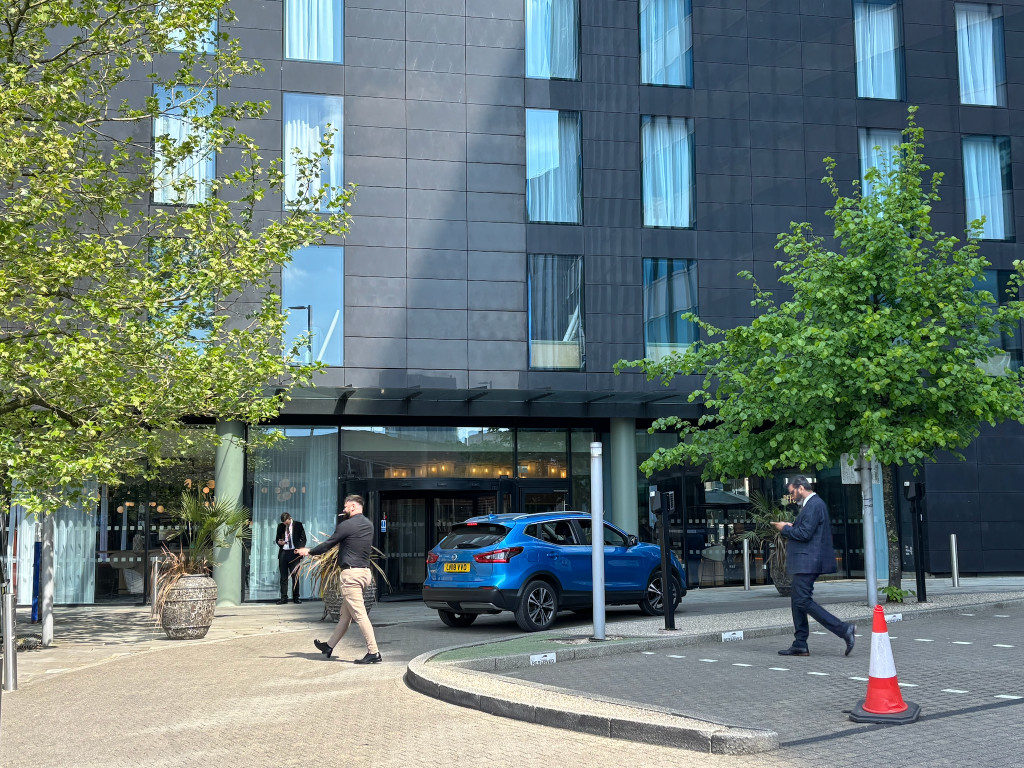Radisson has unveiled two new hotels it says are verified as net zero – one in Manchester, UK, and the other in Oslo, Norway.
Heat pumps power the central heating and water systems in Manchester hotels, which are not dependent on fossil fuels.
Oslo is one of few cities in Europe that uses district heating powered entirely by renewable energy sources.
Radisson says that the hotels are assessed by using the Net Zero Methodology for Hotels As a result, they are able to minimize their emissions from all aspects of operations including menus and supplier partnerships.
Each has reduced their carbon footprints by rethinking the food sourcing process and partnering with vendors who are committed to reducing greenhouse gas emissions.
Both properties have the designation “Net Zero” in their names.
• Radisson Hotel Manchester City Centre, A Verified Net Zero Hotel
• Radisson Red Oslo City Centre, A Verified Net Zero Hotel.
Radisson believes that the financial constraints of the company are preventing further expansion.
Inge Huijbrechts said that Radisson has more than enough net-zero project ready to be implemented, but funding is the main issue. Access to capital for projects that reduce carbon emissions is not available.
What Makes these Hotels Net Zero Hotels?
Radisson has said that it considers the environmental impact of everyday products and services such as cleaning supplies, bathroom amenities and laundry operations.
Restaurant menus have been redesigned in order to reduce emissions. Suppliers and the company have worked together to source ingredients and materials with lower impact.

The Manchester Hotel offers Net Zero Standard King or Double Rooms. The food menus are now rated using a traffic-light style label. Meals range from A (lowest emission) to E.
Most of the A-rated dishes are plant-based. A beef steak is rated E.
Food is responsible for 59% of the company’s scope 3 emissions. This is primarily due to food production and transport.
Chefs can now convert waste into carbon emissions to better understand each dish.
In the room, you won’t see any single-use items or laundry slips. Plastic is not used in the rooms, with the exception of larger toiletry containers that are recycled via a specialist partner.

Why don’t more hotels go net zero?
Huijbrechts stated that Radisson invested in the net-zero renovations to prove the business case. The Manchester project cost more than a million euro to electrify.
“We wanted show investors that it is possible, and that there are revenues to be made. This is especially true for corporate clients who track emissions through staff travel,” said she.

A recent report The World Business Council for Sustainable Development supports this.
The study found that 91% of leaders in business see net zero as a great investment opportunity. However, only 1% believe the transition to net zero is going well.
Many have called for more government support to unlock funding.
Radisson, along with all major hotel chains operating in Europe faces a deadline of 2050 to make its buildings net-zero according to EU regulations.
Huijbrechts stated that there was not enough time to convert all the buildings.
Even with Improvements, There’s Still Room to Improve
Radisson admits that it still has areas to decarbonize such as the laundry. The gas-powered operations of the supplier at Manchester are run by this site.
Huijbrechts says the company offsets its carbon emissions that it cannot eliminate by using carbon credits based on nature, which focuses more on carbon removal than carbon avoidance.
As an example of a removal project, you can think about things like soil regeneration or tree planting, not only preventing emissions.
Radisson claimed that it has reduced the Manchester Hotel’s total carbon footprint of 60% through the conversion. The carbon credits have offset the remaining 40%.
Huijbrechts stated, “We remove what we cannot and reduce where we are able to.” We expect to see a bigger reduction in the total carbon footprint over time, as the full effect of the technical equipment investments and the operational reductions measures such as low carbon menus and waste reduction come into play.
Skift’s detailed reporting on climate change issues is possible thanks to the financial support from Intrepid Travel. Skift can now provide you with high-quality journalism about one of the biggest issues facing our planet. Skift’s editorial staff makes all decisions independently. Intrepid does not participate in these decisions.



